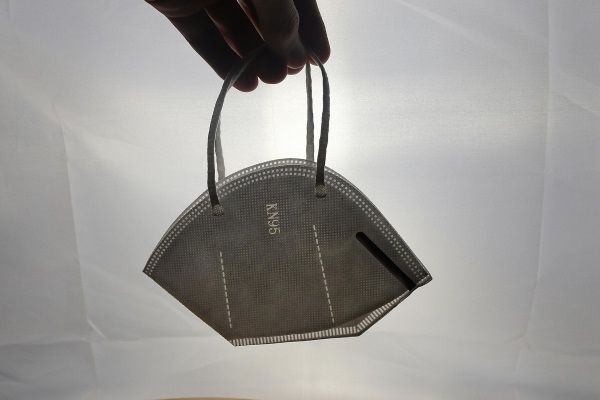
Reports of counterfeit or substandard facemasks have been widespread during the pandemic, but a new study suggests US hospitals may still have fraudulent products in storage.
The study – published in the journal BMC Infectious Diseases – looked at samples from the 100 or so different makes and models of N95-type facemasks in the inventory of US hospitals during COVID-19 – approved for emergency use during the COVID-19 crisis.
The authors note that prior to the pandemic most large hospitals would have only one or two suppliers of N95 masks , both from US manufacturers, but overseas supplies have swamped the health system after last year's emergency use authorisations.
A "substantial number" of the masks examined by the team originated from unknown vendors, often with Chinese writing on the packaging, with many carrying what appears to be fraudulent marking.
"Any mask claiming multiple non-identical regulatory approvals is de facto fraudulent," they point out, noting that samples included KN95, CE or NIOSH logos in addition to claiming to be compliant with the N95 standard.
Some of the masks in the sample seemed very similar to items deemed to be counterfeit by the FDA, suggesting further that fraudulent masks are being used in US hospitals.
A subset of 19 masks were selected for filtration testing, and here the pictures was mixed. All N95 masks and some of the KN95 masks performed as expected in that they removed more than 95 per cent of particles from a test airstream.
That said, a "substantial number" of KN95 models, failed testing and one unmarked mask actually released more particles than were delivered by the testing apparatus – giving it a negative filtration performance and making it a potential health hazard.
The results show that "poorly performing masks make up a substantial portion of the inventory of non-domestic N95-type masks available in US major academic medical centres," write the researchers.
On the plus side, none of the non-performing mask models had been used by a collaborating hospital and were being stored for potential emergency use in the future.
However, the authors suggest it is often impossible to determine whether a KN95 mask is legitimate or not based on the label or packaging, and that creates "an ideal setting for counterfeiters to produce and misrepresent their products as legitimate."
"We recommend that all N95-type masks have identifying information printed directly on the product that describes their manufacturer…and that the FDA make public all data submitted by manufacturers" in its EUA listing, they conclude.
All companies should also be required to provide basic operational data including name and place of business, proprietary or brand name, model number, marketing authorisation, a copy of the product labelling, and evidence of authorisation with quality management systems, according to the researchers.
Image by GreenvalleyPictures from Pixabay
©
SecuringIndustry.com





